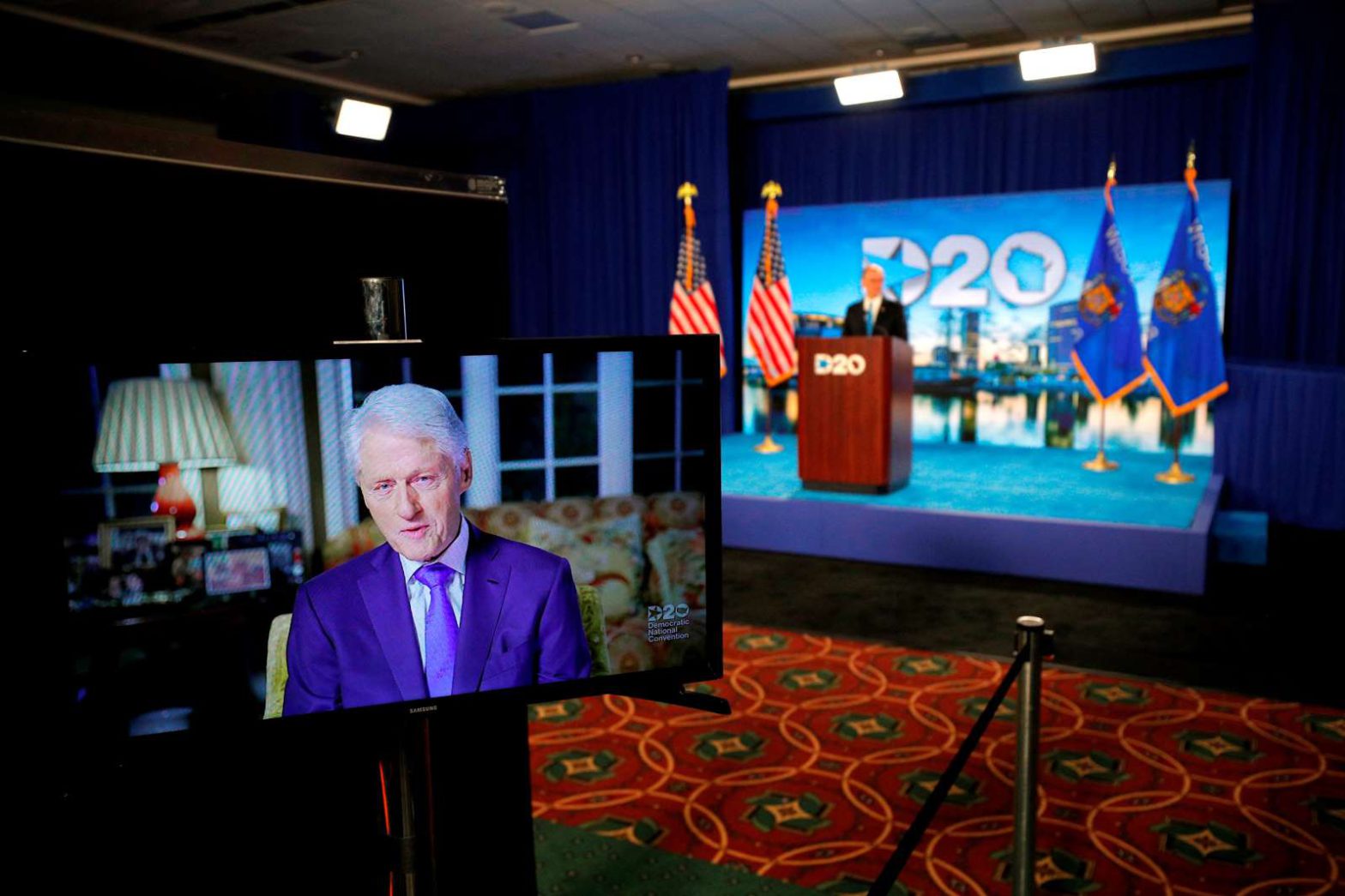It was another unconventional night for fact-checkers at the truncated Democratic National Convention, which has been forced to go virtual because of the coronavirus pandemic.

Clinton’s Misleading and Meaningless Unemployment Claim
Clinton, who uncharacteristically spoke for less than five minutes, made a misleading claim when he said that the U.S. is “the only major industrial economy to have its unemployment rate triple” because of President Donald Trump’s handling of the COVID-19 pandemic.
It’s true that the unemployment rates listed by the Organization for Economic Cooperation and Development show the U.S. jobless rate nearly tripling between January and the most recent month on record. The next-largest increase was a near-doubling of the rate in Canada. That’s because the U.S. counts a laid-off worker as “unemployed” even if the layoff is expected to be temporary — while many others do not. In July, those on “temporary layoff” accounted for 56 percent of all those counted as “unemployed” in the U.S., according to the Bureau of Labor Statistics.
Clinton referred specifically to one of the countries that doesn’t include those temporarily laid off in their count of the jobless, saying the U.S. rate is “two and a half times the United Kingdom’s.”
It’s true that the U.K. Office for National Statistics currently lists its unemployment rate as only 3.9% compared with the U.S. rate of 10.2%. But, unlike the U.S., the U.K. doesn’t count those on temporary layoff as unemployed.
And that’s not the only factor making Clinton’s comparison misleading. Other countries — such as Germany — have met the COVID-19 crisis by subsidizing employers to keep workers on the payroll even when there is less work to do. In the U.S., the main approach has been to increase benefits paid to laid-off workers through unemployment insurance.
The OECD Employment Outlook 2020, which was released in July, notes that the U.S. has had a far higher unemployment rate during the COVID-19 pandemic compared with other OECD countries, saying the difference in rates “reflects fundamental differences in countries’ policy mix to cushion the economic and social effects of the crisis.”
“The United States are strongly relying on unemployment insurance benefits to secure the income of workers who lose their jobs, even in the case of a temporary crisis,” the report said. “Meanwhile, other OECD countries, not just in Europe, are making heavy use of job retention schemes, which allow companies to cut hours of work, or even halt work entirely, while keeping their workers attached.”

